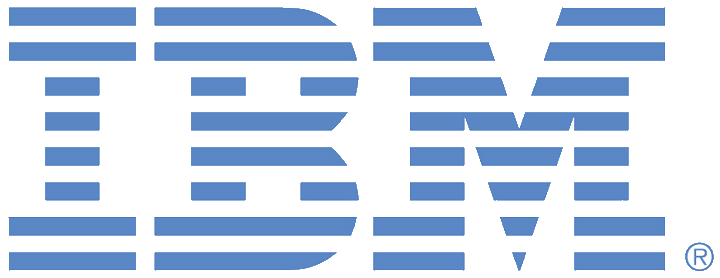
After four years of driving massive changes within IBM, CEO Arvind Krishna believes the storied company is ideally positioned to build new relationships with customers and partners centered on co-creating innovation and new business opportunities.
At the heart of that new mindset within and across IBM is Krishna’s belief that with the pace of change as relentless as it is today, and with technology now pervading every aspect of how businesses operate, IBM not only can but must see the world through the eyes of its customers rather than via the rigid focus of this month’s or this quarter’s sales quota.
“It’s more about the whole company — the whole company has to get more technical and more technology oriented,” Krishna told me in a recent video interview for our CEO Outlook 2024 series. (You can see that full interview here.)
His challenge since becoming CEO in April of 2020 — which happened to be at the onset of the COVID-19 pandemic and the resulting upheaval in the global economy — has included getting rid of many vestigial elements of the company’s past while also retaining and refining those that continue to be valuable and relevant today.
“So why do I say that? Look, there’s a lot of things in IBM’s past that hold true and will continue to hold true likely for the next century. And I think that that is why we have lasted so long and done a few transitions very successfully across these 112 years.
“But the part that I think still holds true is that we are committed to our clients’ success, which means that if you start a journey with them, you’ve got to be committed to get through that journey, and not walk away with something too hard,” Krishna said in describing the company’s new outlook.
“When a client calls us and says, ‘We have a problem,’ I really fundamentally believe it’s our job to give the right technical help to get them through the problem — not debate whether it is or isn’t our problem, or whether it’s somebody else’s piece of software or piece of hardware, or ‘Hey, you people made an error’ as some of our peers in the industry tend to do.
“Instead, we now say, ‘Look, we’ll own the problem with you — let’s try to get to your answer.’ I think that these things will last — I think these are fundamental and will continue to survive.”
And at the heart of that new approach is Krishna’s belief that the old days of IBM doing the creating and the selling while its clients did the consuming and the buying are mostly over. The new model, he said, is shared thinking, shared innovation, and shared opportunity.
As an example, Krishna cited IBM’s work with FuelCell Energy that went far beyond its IT systems and instead delved deeply into the cutting-edge science and engineering that’s dramatically reshaping how the world creates and consumes energy.
“Looking at their internal chemistry data and working with a large language model, we now are working with them to understand how could you extend the life of these devices, which means less membranes, which means less polymers needed, which means better for sustainability, better for the fuel cells,” Krishna said.
“And then you could actually expand the usage of fuel cells because you drop the overall cost, right? That’s a great example of where we bring our knowledge. We understand materials [and the energy industry], and we understand AI. They did not want to put in their unique internal data,” Krishna said, “because their formula for membranes and longevity and all that is, in the end, their secret sauce and why they have a business. So they will do that with us because they actually trust us.”
That’s an ideal example of co-creation because it involves industry expertise, materials-science expertise, data and data-security expertise, and deep AI prowess. But it also included, as Krishna was happy to point, some hard-earned trust.
“I looked [the FuelCell Energy CEO] in the eye and I said ‘I commit to you that none of your data, none of your formulations will ever go anywhere.’ And I love the fact that they are willing to trust us with that. And I love the fact that they’re willing to work with us to see how they could extend and really get a much better product.”
Ask Cloud Wars AI Agent about this analysis
Partner Co-Creation: ‘Obsessed with the Client’
As I’ve mentioned in other analyses of IBM and Krishna’s impact as CEO, he has taken that same co-creation imperative to the IBM ecosystem by reframing not only what’s possible but also what can be most beneficial.
“First, begin with the idea of ‘Let’s be obsessed and focused on the client.’ If I begin with that focus, then the next question becomes, ‘Is it only a win for two parties, meaning the client and one vendor? Or can there be a win-win-win, meaning a client, a partner, and us?’ “
It all comes down to mindset, Krishna said.
“My approach always is, ‘Hey, can I expand the pie?’ If I expand the pie, a smaller angle is still a much bigger piece, right? So actually I’m a lot better off. And I fundamentally believe that if I can work with the right set of partners, maybe we’re expanding the pie.”
That’s precisely what IBM has done with some other Cloud Wars Top 10 companies that were, just a few years ago, head-to-head competitors of IBM, including Microsoft and AWS, resulting in businesses that could be approaching $1 billion.
And the long-time partnerships with Salesforce and SAP and Adobe are continuing to get stronger as well. “We’re already very large for them but I’m not satisfied. Can we even get a bigger pie? Can we grow some new ones that we just started out? For example, ServiceNow and Palo Alto Networks — can we begin to grow these to become at that scale?”
Final Thought
After inheriting a splintered and sluggish IBM four years ago from former CEO Ginni Rometty, and as first the pandemic changed the business world profoundly and then the generative artificial intelligence (GenAI) revolution did more of the same, Krishna has had to drive a great deal of product and technology innovation inside IBM.
While taking nothing away from that achievement, I believe his biggest overhaul has been in reshaping the culture of IBM as described above.
“The big shift I’m trying to make to the company is focused on where we can bring a lot of value to the clients,” Krishna said, emphasizing the role of hybrid cloud and AI today and the looming impact of quantum computing in a year or two.
“In August, using our own internal large language models, we said to the entire company that we’d like you all to do something that you think could either help yourself or maybe a client. Take a week and just do this. And I was surprised that two-thirds of the company signed up — we had 30,000 teams from all over the company playing around with this powerful new technology,” he said.
“And those are things that speak to the excitement of the moment, but also speak to our true heart so that we can actually put these ideas and discoveries into the service of our clients.”
- Watch the full Arvind Krishna interview

Register for Acceleration Economy’s Cloud Wars CEO Outlook 2024 Course, now available. Featuring exclusive interviews on strategy, AI, and customers with the CEOs of Cloud Wars Top 10 companies.










